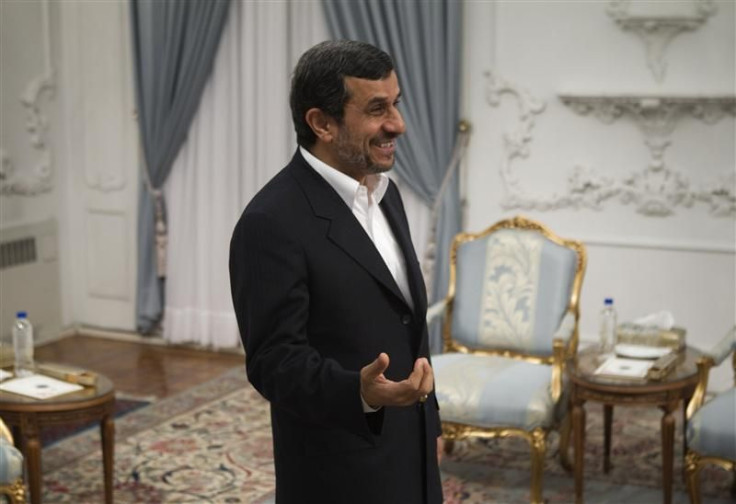Iranian Parliament Summons Ahmadinejad as Political Infighting Intensifies

While Iran faces the wrath and sanctions of much of the Western world over its suspected nuclear weapons program, the Iranian government is itself embroiled in an internal power struggle that shows no signs of abating.
The parliament has summoned President Mahmoud Ahmadinejad to answer a raft of questions for the first time since the 1979 Revolution overthrew the monarchy and established the Islamic Republic. Ahmadinejad is expected to reply to a flurry of questions regarding the nation’s weak economy, as well as foreign and domestic policy measures.
There is a requirement for the president to answer questions in an open session of the parliament, Deputy Speaker Mohammad Reza Bahonar said in a radio broadcast.
According to Iran’s constitution, Ahmadinejad must appear before MPs within a month, which suggests he could wait until after the March 2 legislative elections.
But there are other factors at play behind the scenes between Ahmadinejad and the Parliament; and between Ahmadinejad and the country’s supreme leader, Ayatollah Ali Khamenei.
James Reynolds, BBC’s correspondent in Teheran, commented: “Iran's president and parliament are fighting a lengthy battle for power. Now, parliament has decided to take what may be a dramatic public step. The summons for … Ahmadinejad comes at a critical moment for the country's divided conservative establishment. Parliamentary elections are set to be held at the start of next month. The ruling conservatives came together in 2009 to defeat the opposition Green Movement. But since then, conservatives have fought among themselves.”
Reynolds added: “Ahmadinejad and his supporters want to reduce the influence of the country's ruling clerics. But the supreme leader, Ayatollah Ali Khamenei, and his allies in parliament and the powerful Revolutionary Guards have fought back.
The conflict between Ahmadinejad and Khamenei has been brewing for more than a year. In April 2011, Khamenei demanded that Ahmadinejad reinstate Intelligence Minister Hojjat ol-Eslam Heidar Moslehi, whom the president had dismissed in retaliation for having fired an official close to Ahmadinejad’s chief of staff, Esfandiar Rahim-Mashaei.
Ahmadinejad waited almost two weeks before agreeing to the order.
According to report, the Majlis (Parliament) will also ask Ahmadinejad why he hasn’t more aggressively promoted Islamic dress codes among Iranians.
Reuters reported that if Ahmadinejad fails to heed the summons, he might be impeached – although that event is unlikely given that Iran is in the middle of serious crisis with the West over oil sanctions.
One unnamed Iranian politician told Reuters: This will only weaken Ahmadinejad's camp but will not lead to his removal.”
© Copyright IBTimes 2025. All rights reserved.




















